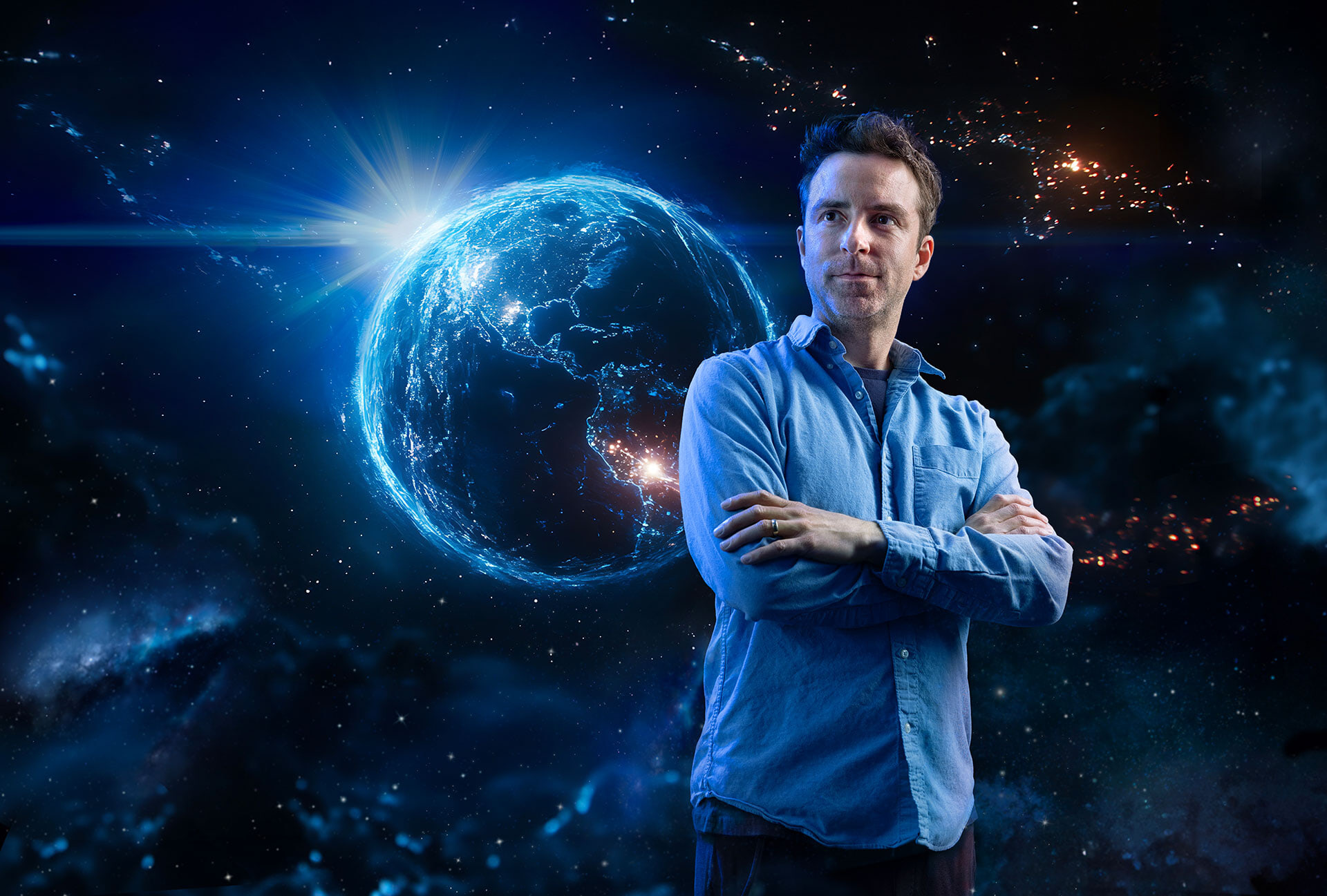
BGSU professor at the forefront of space sustainability research
Estimated Reading Time: 3 minutes
Dr. Timothy Pape's work on managing resources beyond Earth is gaining global recognition
Many people think about sustainability in terms of the recycling center at the edge of town, the wind turbines dotting the landscape, or the organic farm down the road.
But for Dr. Timothy Pape, assistant professor in the Bowling Green State University School of Earth, Environment and Society, the sustainability perspective stretches well beyond the horizon — and even the globe — into the realm of outer space.
Pape, who also serves as a research associate with the PlanetStewards project at Utrecht University in the Netherlands, devotes a portion of his work to looking at how we can approach the physical universe beyond Earth’s atmosphere in an ethical and sustainable framework.
“In the past, there has been so much talk about how Earth is Earth and space is space, as two distinct entities, but I noticed no one was discussing anything about nature being present in space,” he said. “It was all about the resources we might find and getting them out, but now we are looking at whether we will use space sustainably, or in a colonial type of approach, or do we use it at all.”
Pape’s groundbreaking academic research on how to manage natural resources off-Earth caught the attention of the international group at PlanetStewards. He was invited to lead a workshop at the 2024 Earth-Space Symposium funded by the European Research Council and hosted by the Copernicus Institute of Sustainable Development, providing a forum for his work to have a global impact on sustainability.
“There hadn’t been much discussion about how society would manage resources in space sustainably,” said Pape, who has a five-year appointment with the consortium. “It is important to have a pointed discourse analysis on how policy on this would be set by having a core understanding of nature and what constitutes nature. Then we can work on what is best for Earth-Space governance.”
Pape readily admits that taking the sustainability framework to the moon, the planets in the solar system and the vast expanse of space in our universe raises myriad questions and challenges, but it is an academic exercise he hopes will engage many more scientists, theorists, political thinkers and students.
“I try to instigate conversation and get a wide range of viewpoints on what has been an underused piece of environmental decision-making,” said Pape.
While sustainability has historically been viewed as supporting the health and prosperity of the Earth through economic, environmental and social guidelines, Pape believes that there needs to essentially be — space for space — in that mission. As thousands of satellites track paths across the near-space region, manned space stations become more commonplace and deep-space exploration advances, he said responsibilities increase exponentially.
“What we find in space might not be the complex systems that we see here on Earth, or nature as we’ve always known it,” he said. “But as a society, we tend to marginalize ways of thinking about nature to serve economic interests or extraction. We need to think in a more holistic and inclusive kind of way and think more about where we are going and what we are going to sustain.”
Pape is excited about the potential opportunities at BGSU for environmental science students and affiliated faculty “to work through this frontier of research” as his association with PlanetStewards and his work on the topic of constructing nature in space continue.
“Our hope is that a lot of what I am doing will lead to a special-topics class, in a bio-physical/social science kind of way,” he said, adding that the BGSU Observatory and its reflecting telescope present the opportunity to solidify the sustainability connection between planet Earth and the responsibility to care for space.
“Future generations will have the opportunity to make those very important decisions on how we govern what we consider natural resources. We are at a place in human evolution where we need to think about these things more.”
Related Stories
Media Contact | Michael Bratton | mbratto@bgsu.edu | 419-372-6349
Updated: 04/01/2025 08:47AM



